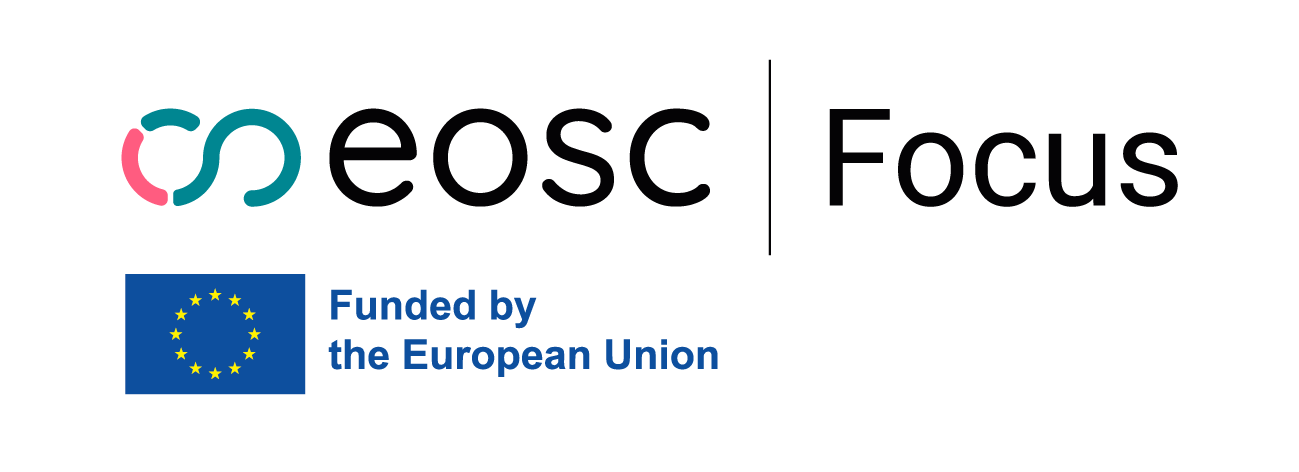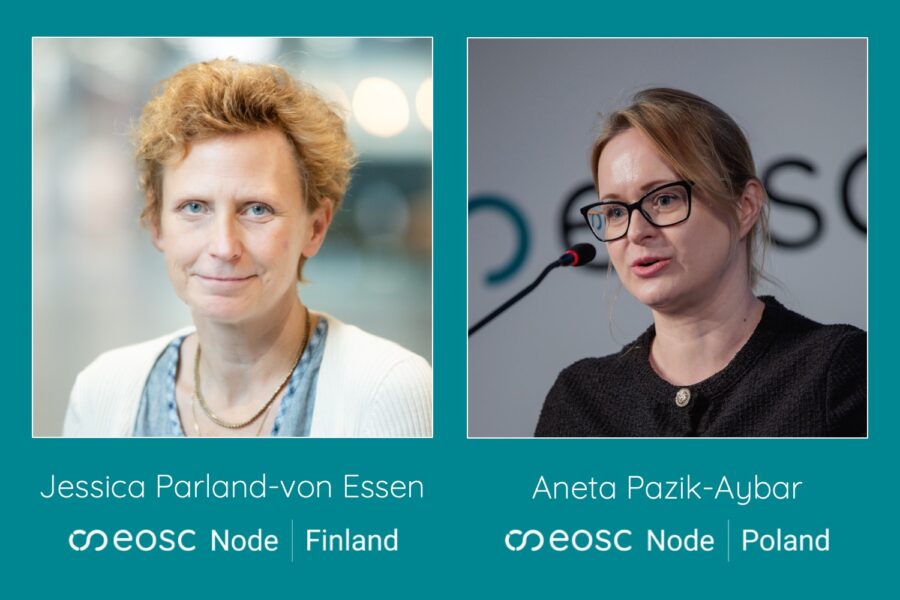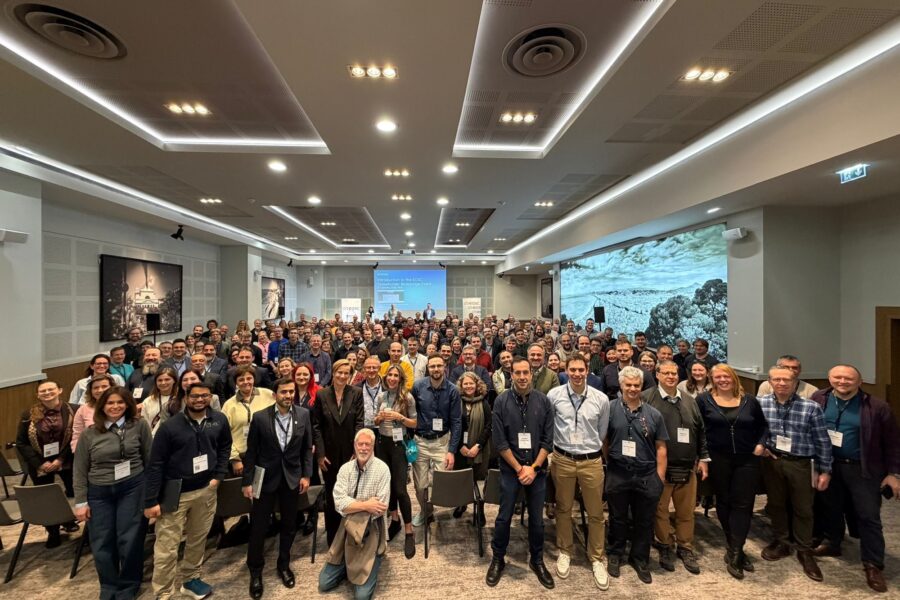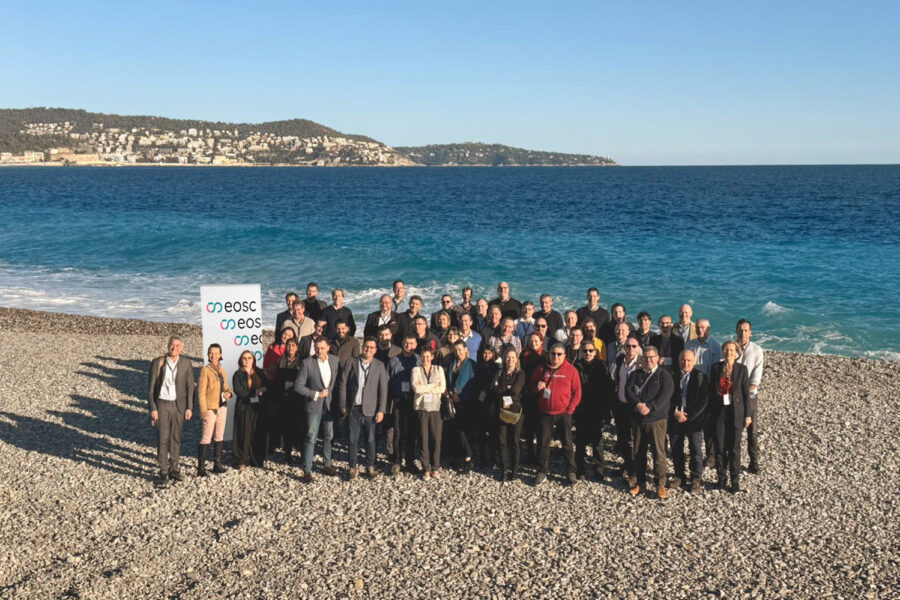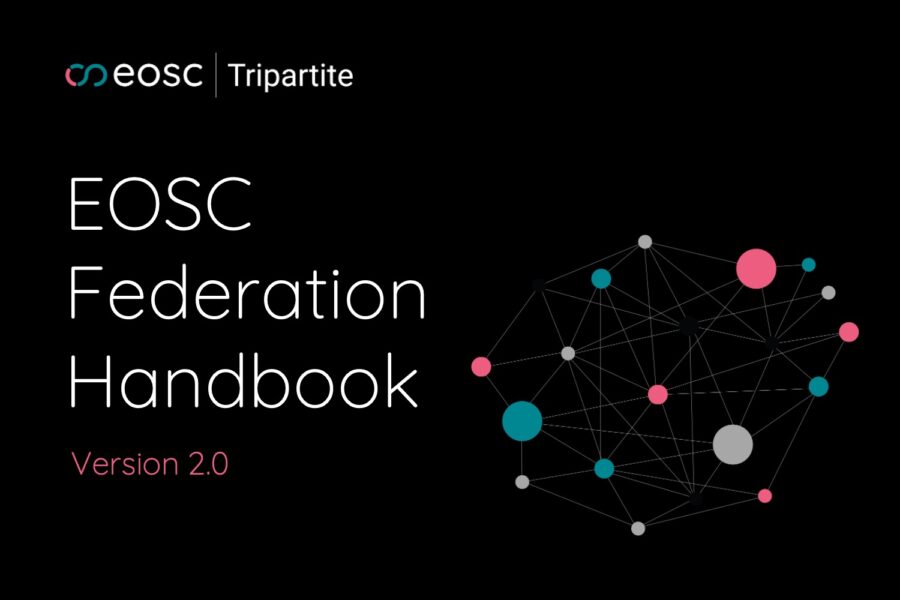This interview is part of a series coordinated by the EOSC Focus project. The interviews aim to highlight the role of the EOSC Association’s Mandated Organisations. By bringing their activities and insights to the forefront, the EOSC Focus interviews will help to reinforce the connections between each country’s Mandated Organisation and its EOSC Association member and observer organisations, as well as to make visible the work going into the implementation of EOSC at the national and institutional levels.
Niels Deriemaecker (Belnet) and Isabel Caetano (EOSC Association) interviewed Laurents Sesink of SURF, the EOSC Association’s Mandated Organisation in the country. In the interview, Laurents talks about SURF, the Dutch experience with Open Science and EOSC development.
Could you describe the role of SURF in the EOSC Association?
SURF collaborates with 100+ educational and research institutions to advance digitalisation and improve education and research. In 2022, the Dutch government pledged to promote Open Education and Open Science. National stakeholders, through the National Programme Open Science (NPOS), created an Ambition Document, outlining their vision for Open Science in 2030. The Minister of Education, Culture and Science designated SURF to represent the Netherlands in the EOSC Association, aligning with European policies. “Open Science NL” was also established to expedite the transition to open science based on the NPOS Ambition Document and Rolling Agenda.
What about the bi-directional role that the MO has… How is SURF trying to reflect those goals?
SURF’s goal is to align the Dutch Strategic Research and Innovation Agenda (SRIA) with Open Science efforts. We facilitate the coordination of Dutch stakeholders, facilitate communication, and aim to optimise contributions to EU-funded actions related to SRIA. SURF promotes collaboration between Dutch Open Science and international initiatives in the European Research Area. Open Science NL provides an opportunity for SURF and Dutch EOSC-A members to align SRIA with Open Science objectives.
What are the main motivations for SURF for being a member of the EOSC Association?
The Netherlands has a strong commitment to Open Science, and all relevant stakeholders are actively working to strengthen it. SURF, the collaborative IT organisation, is involved in developing IT solutions for research, including Open Science, data management, infrastructure, and skills. We aim to facilitate Open Science through services and infrastructure. SURF also contributes to cross-border research infrastructures and sees joining the EOSC Association as a logical step to promote Open Science and collaborate with European and global stakeholders.
How does your strategy and organisation goals reflect the EOSC?
To establish Open Science as the norm, improvements are needed, such as enhancing infrastructure, developing skills, and establishing best practices. These changes should happen at institutional, national, and European levels. The alignment between the Netherlands and European Open Science goals is promising, but it will take time and collaboration from stakeholders at various levels to implement this strategy.
How is SURF facilitating or promoting the EOSC ecosystem?
The Netherlands is an early adopter of Open Science but has a somewhat fragmented landscape despite available services. The EOSC concept of federated EU, national and thematic nodes could be adopted in the Netherlands to enhance national coherence and a seamless connection with European EOSC nodes and European Data Spaces. This builds on existing Local Digital Competence Centres (LDCC) and Thematic Digital Competence Centres (TDDC) to provide more organised services and bridge the current fragmentation.
How will this be brought to the table in practice on the national level?
The Netherlands is engaging in discussions about EOSC nodes, involving EOSC-A, EOSC-SB, NRENs, and more to gather various perspectives and inform stakeholders. This aims to kickstart discussions about EOSC at the national level.
EOSC is envisioned as a federation connecting various levels, impacting the Netherlands. These discussions cover topics like EOSC’s future, cross-border access, funding, business models, public values, and the research community’s role in promoting Open Science.
These discussions are aligned with the goal of making Open Science the norm and highlight the importance of multidisciplinary research at all levels to address global challenges.
Are there other engagement activities that have been developed or are in place to increase community representation?
Tripartite events are a very good initiative. It was an opportunity for us, as an MO to bring together the perspectives of the European Commission, our ministries, and the key stakeholders within the Netherlands. If not for the tripartite events, it would be very hard to get all involved parties together.
What results came out of the tripartite event held in the Netherlands in April 2023?
The discussions led to a better understanding of various challenges faced by different organisations and stakeholders. This included issues like public organisations struggling with procurement, funding, and cross-border service access, the need for ongoing funding for long term data preservation, and questions regarding responsibility for making data FAIR. It also highlighted the necessity for collaborative efforts among all stakeholders and shed light on the European Commission’s procurement rationale.
And regarding the discussions and the engagement activities, is there a coordination mechanism in place in the Netherlands?
Open Science in the Netherlands is a combination of bottom-up initiatives being enhanced through top-down coordination. The goal is to expand Open Science’s practice among researchers through collaborative efforts. Several organisations and networks, like DANS, HealthRI, the eScience Centre, open science communities, and digital competence centres at universities, are actively involved in different aspects of Open Science. Open Science NL, a new funding organisation, supports Open Science principles.
While there’s no single national coordinator, multiple stakeholders are eager to strengthen existing activities and collaborate. They follow the rolling agenda of the National Program of Open Science (NPOS) to align with national ambitions, ensuring coordinated efforts in Open Science.
If you had to identify the most relevant national policies, could you select some examples to share with us?
Open Science in the Netherlands goes beyond FAIR data and is influenced by two key government statements. In 2013, the government aimed to make all publicly funded research openly available (100% open access) by 2020. In 2017, the Dutch government further committed to making Open Science the new norm in the coalition agreement for 2017-2021. These statements, in addition to the NPOS 2030 ambition document and its rolling agenda (2022-2030), shape the country’s comprehensive approach to Open Science.
What resources and funding sources are available, and needed, to develop EOSC in your country?
Major funding for Open Science in the Netherlands comes from Open Science NL, which is investing 20 million euros annually for the next decade. This covers a wide range of areas, including infrastructure, human capacity, best practices, and other related projects.
Another funding program, led by the NWO, provides funding for strengthening LDCCs and TDCCs, as well as investing in e-science and computing facilities.
In addition, there’s alignment between the TDCC and the European Open Science Cloud (EOSC), with organisations like DANS, TUDelft, and Health-RI actively participating in EOSC development in their respective TDCC domains.
Could you highlight the strengths the Netherlands has?
Efforts are focused on aligning both bottom-up and top-down activities to establish Open Science as the norm. This involves collaboration among stakeholders and addressing infrastructure, human capacity, and digital competence centres. The relevant stakeholders have a shared ambition and Open Science NL can boost the implementation of Open Science by funding activities, and there is a connection to the National Programme for Recognition and Rewards. Key stakeholders are emerging communities like the Open Science Communities and Reproducible Research Network that strengthen themselves and raise important questions, particularly regarding the need for improved services, fair data, and research software. Additionally, the presence of LDCCs and TDCCs at institutional and national levels provides essential building blocks for Open Science in the Netherlands.
What are those key actors?
Key actors in promoting Open Science include research and research support communities, which drive the implementation of Open Science principles. Digital Competence Centres and Thematic DCCs are crucial for institutionalising support for FAIR data, research software, and research IT. Organisations like 4TU.ResearchData, Health-RI, and DANS play essential roles as data archives. The eScience Centre pioneers research software management, SURF serves as the National Research and Education Network (NREN), and Open Science NL is a funding organisation. Research Infrastructures play a vital role in enabling researchers to work with digital data.
Are there key areas for improvement in the Netherlands in regard to EOSC development?
There are several critical areas of improvement in the Netherlands concerning Open Science. First, there’s a need to address the shortage of skilled professionals for LDCCs and TDCCs. A curriculum for software engineers, data stewards, and career paths is essential to ensure competent individuals operate these centres. Some Dutch stakeholders have been involved in the EOSC-A taskforce on ‘Data Stewardship, curriculum, and career paths,’ which can provide valuable recommendations for curriculum development.
Second, there’s a need to focus on the added value for researchers, emphasising interoperability to facilitate data reuse across domains. Collaboration is key, as no single institute can achieve this independently.
Third, streamlining the processes for researchers to use existing services and infrastructures is crucial. Alignment with researchers’ needs and thought processes can enhance their experience.
Lastly, ensuring the long-term sustainability of open research data is essential, as temporary funding schemes may not be suitable for long-term maintenance. Addressing these areas will further strengthen the Open Science landscape in the Netherlands.
What can you tell us about the key challenges for EOSC development in your country?
The primary challenge in the Netherlands is moving from a fragmented landscape to a more integrated, open research commons. A holistic perspective would simplify understanding available services, how to use them, and how to scale them up for collaboration with European peers. This improvement is crucial as many services are available but are often challenging for researchers to navigate and utilise effectively. Guidance for intuitive use and integration could be provided by institutional, thematic, national nodes, or even the European node.
Another significant challenge is the procurement discussion, focusing on keeping the research community in control while safeguarding public values. Public organisations have unique constraints and can’t assume the same roles as private entities. The role of public organisations in future operations needs careful consideration considering these limitations.
What are the examples you identify, showing ERA policy priorities and EOSC’s impact in your country?
SURF Research Cloud offers researchers extensive control over their computing infrastructure, from workstations to clusters, to handle large and complex data with high-performance computing. It accommodates various operating systems and analysis software. The concept of SURF research fits well in the idea of EOSC as a federation of systems.
The concept of European collaboration and federation is also applicable for high performance compute. SURF is part of the Jules Verne consortium, which will host a new European supercomputer in France in 2026.
To establish Open Science as the norm, changing the current recognition and rewards system is vital. The Dutch Recognition & Rewards program, “room for everyone’s talent,” is modernising academia’s system of Recognition and Rewards. Additionally, Dutch academia collaborates with European organisations in COARA to further modernise the recognition and rewards system.
What is your vision for EOSC after 2027?
SURF will participate in national and thematic nodes, specialising in e-infrastructure, and collaborate to promote open science. SURF’s involvement extends to the European level through EGI and GEANT memberships, contributing to the development of the European node and the federation.
Thinking back on your experience with Open Science and EOSC development, is there anything that you feel is important?
To truly establish Open Science as the norm, a systemic change is required. This change involves shifting the culture not only among researchers but also among service providers, funders, and government organisations. Long-term commitment is essential because this transformation won’t happen overnight. It necessitates collaborative efforts from all stakeholders, with everyone acting as partners to promote Open Science. This shift may involve new responsibilities and the removal of existing tasks, as other organisations might be better suited for certain roles. It demands a new collaborative mindset across all levels, including institutions, infrastructure, services, at the national and European levels.
| About SURF SURF is a cooperative association of Dutch educational and research institutions in which the members combine their strengths. SURF works together to acquire or develop the best possible digital services, and to encourage knowledge sharing through continuous innovation. The members are the owners of SURF. Read more about SURF | |
| About Laurents Sesink Laurents Sesink has a broad background in Open Science and is currently (2022) Strategic Relations Manager in the core team innovation at SURF. In this role he is involved in EOSC related activities, and he is the lead of the FAIRdata roadmap of the innovation zone Open Science. Laurents studied history at Utrecht University and historical information science (Digital Humanities) at Leiden University and began his career (1995) at the Royal Netherlands Academy of Arts and Sciences where he was involved in open access, data management, digital longevity, Digital Humanities, Research Infrastructures and EC funded projects to foster data management, develop interoperability standards for scholarly communication and build technical infrastructures to enable Data Science. Laurents joined in 2014 Leiden University where he became head of the new Centre for Digital Scholarship (CDS). The central objective of CDS is to support and facilitate digital scholarship within Leiden University, in close collaboration with other centres of expertise, with research institutes and with national and international research support organisations. | 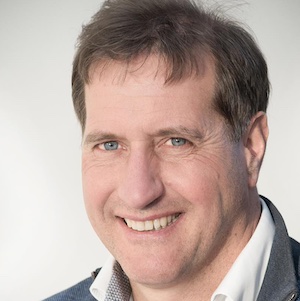 |
